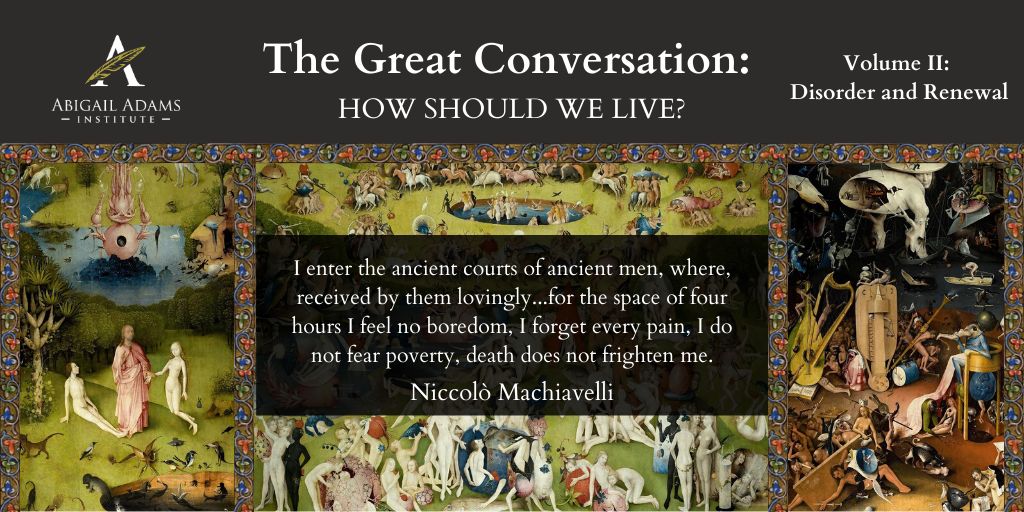How should we live? This question lies at the core of what it means to be human. In volume II we explore the “best which has been thought and said” from the middle ages through the early renaissance. Today’s session is on The Rule of Saint Benedict.
Probably written sometime in the 540s, The Rule of Saint Benedict was decisive for the preservation of Western civilization. Much of the history of western Europe has hinged on finding a way to order society after the collapse of the Western Roman Empire. At the time Benedict (c.480-c.550) wrote his Rule, the Western imperial court had just been formally dissolved. Italy came to be ruled by Germanic kings (who were Arian Christians): war all around; urban order collapsing; material culture regressing. Civilization was gasping in the long post-imperial tidal recession. Humanistic learning survived in the monasteries, and those monasteries largely came to be ordered by this Rule, which presents a model of life centered on prayer, dignifying manual labor, involving consultative self-governance, and exemplifying the value of a written constitution and the rule of law.

